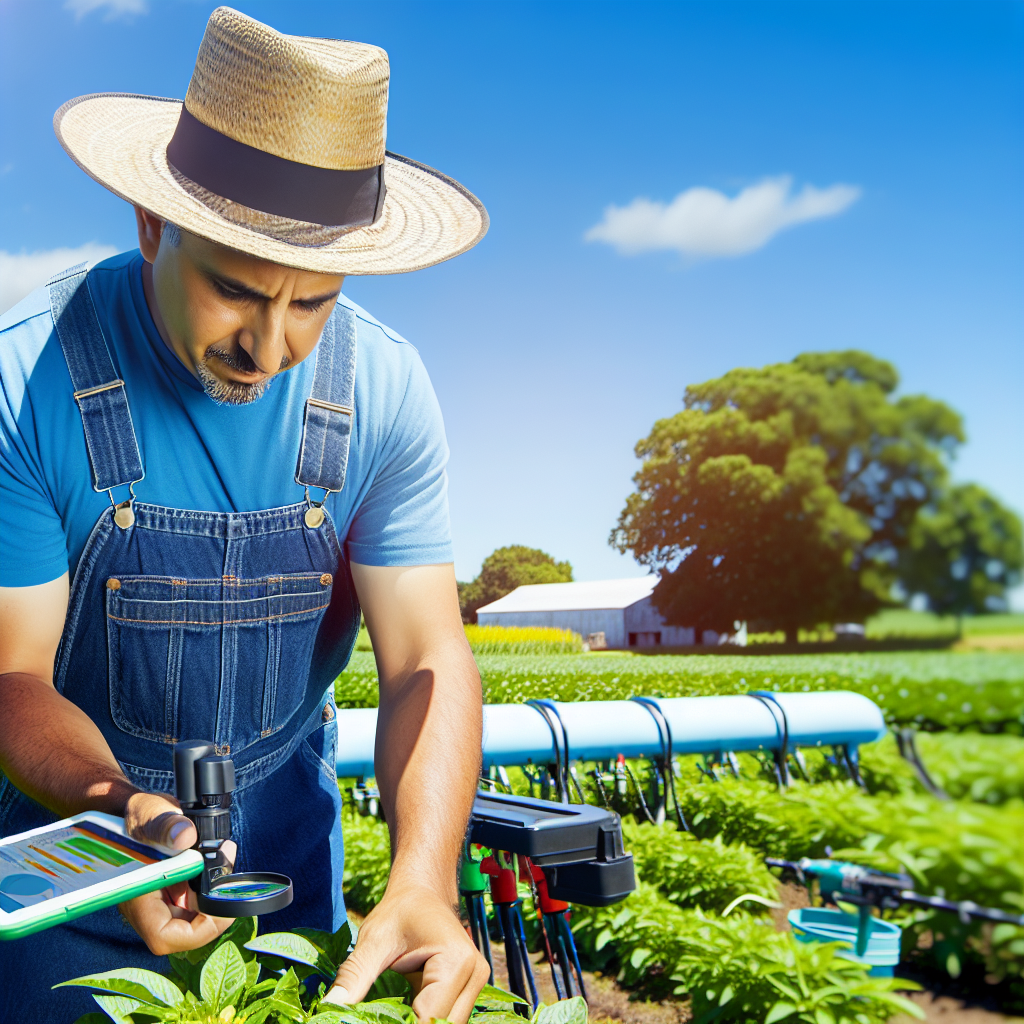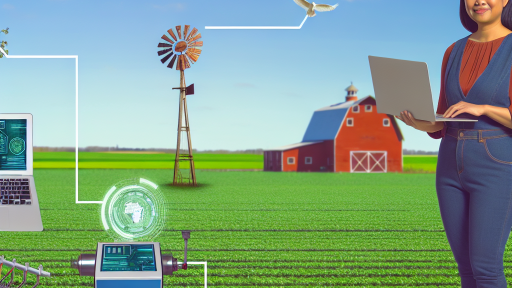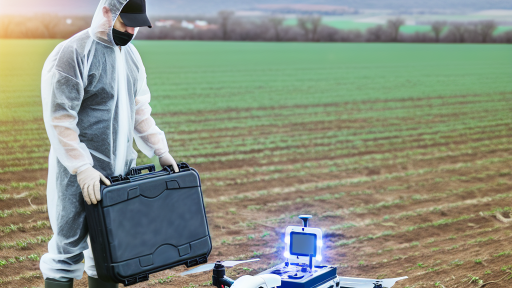Introduction to Genetically Modified Crops
Genetically modified crops, or GM crops, offer innovative solutions for agriculture.
These crops undergo genetic engineering to enhance desirable traits.
Farmers use GM crops to increase resilience against pests and diseases.
Additionally, they help improve yields, which is essential for global food security.
Scientific advancements enable the introduction of beneficial traits into plants.
This process often involves inserting specific genes that confer advantages.
As a result, GM crops can exhibit improved growth rates and nutrient profiles.
Furthermore, they can withstand environmental stresses like drought and salinity.
Many countries have embraced GM technology to support their agricultural practices.
Growing these crops can significantly reduce the need for chemical pesticides.
By minimizing pest damage, farmers can enjoy better harvests consistently.
This method also leads to reduced chemical runoff into nearby ecosystems.
Moreover, GM crops can be designed to be herbicide-resistant.
This resistance allows farmers to use less toxic agricultural practices.
Consequently, they can manage their fields more efficiently and sustainably.
Transform Your Agribusiness
Unlock your farm's potential with expert advice tailored to your needs. Get actionable steps that drive real results.
Get StartedPopular examples of GM crops include Bt cotton and Roundup Ready soybeans.
These crops have showcased remarkable benefits in various farming regions.
The introduction of GM technology prompted debates on its safety and ethics.
Nonetheless, extensive research supports the safety of GM crops for consumption.
Organizations such as the World Health Organization endorse their use.
GM crops represent a valuable tool addressing modern agricultural challenges.
Overview of Traditional Farming Methods and Their Limitations
Basics of Traditional Farming
Traditional farming relies heavily on natural processes.
Farmers cultivate crops according to seasonal cycles.
They use techniques passed down through generations.
Common practices include crop rotation and intercropping.
These methods aim to maintain soil health and fertility.
Challenges Faced by Traditional Farming
Traditional farming often struggles with low yields.
Many factors contribute to reduced productivity.
Extreme weather events negatively impact harvests.
Pests and diseases pose significant threats to crops.
Moreover, limited access to advanced technology restrains farmers.
Resource Limitations
Water scarcity affects traditional farming practices.
In some regions, droughts lead to crop failures.
Soil degradation also reduces productivity over time.
Without proper management, nutrients get depleted.
This cycle makes it challenging to sustain farming operations.
Economic Limits
Many farmers face financial pressures in traditional farming.
Input costs for seeds, fertilizers, and equipment are rising.
Additionally, fluctuating market prices affect profitability.
Showcase Your Farming Business
Publish your professional farming services profile on our blog for a one-time fee of $200 and reach a dedicated audience of farmers and agribusiness owners.
Publish Your ProfileConsequently, farmers struggle to make ends meet.
This situation undermines their incentives to invest in improvements.
Environmental Impact
Traditional farming can lead to negative environmental effects.
Over-reliance on pesticides impacts local ecosystems.
Moreover, soil erosion results from conventional plowing techniques.
These practices heighten the risk of biodiversity loss.
Farmers often seek sustainable solutions to mitigate these impacts.
How Genetic Modification Works
Key Techniques and Technologies
Genetic modification involves altering the DNA of an organism.
This process enhances crop traits such as yield and pest resistance.
One common technique is recombinant DNA technology.
Scientists insert specific genes into a plant’s genome.
They often use bacteria to transfer these genes.
Another technique is CRISPR gene editing.
This method allows precise modifications of the DNA sequence.
It improves traits without introducing foreign DNA.
Gene silencing can deactivate undesirable genes.
This process helps crops resist diseases and stress.
Furthermore, marker-assisted selection accelerates traditional breeding.
It identifies plants with desirable traits at the seed stage.
Consequently, farmers can select the best plants for cultivation.
Biotechnology also enhances the nutritional value of crops.
Biofortification increases the vitamins and minerals in food.
Overall, these techniques comprise a powerful toolbox for farmers.
They enable the development of crops that thrive in tough conditions.
Such innovations increase food security globally.
In addition, the use of genetically modified organisms can reduce pesticide use.
This benefits both farmers and the environment significantly.
Genetic modification offers effective solutions for modern agriculture.
Uncover the Details: Drone Technology Revolutionizing Sustainable Farming Practices
Benefits of Genetically Modified Crops on Crop Yields
Increased Resistance to Pests
Genetically modified crops often incorporate traits for pest resistance.
This reduces dependency on chemical pesticides.
Farmers experience fewer crop losses due to pest damage.
Consequently, yields increase as more plants survive to harvest.
Improved Resistance to Diseases
Many genetically modified crops are engineered to withstand specific diseases.
This adaptation significantly minimizes crop failures.
Farmers can cultivate varieties that are more profitable over time.
Therefore, disease-resistant crops contribute positively to overall yield.
Enhanced Tolerance to Environmental Stressors
Some genetically modified crops tolerate environmental challenges better.
For example, drought-resistant varieties thrive in arid climates.
This ability allows farmers to maintain productivity even during dry spells.
Showcase Your Farming Business
Publish your professional farming services profile on our blog for a one-time fee of $200 and reach a dedicated audience of farmers and agribusiness owners.
Publish Your ProfileAs a result, overall crop yields stabilize despite changing weather patterns.
Higher Nutritional Value
Genetic modifications can enhance the nutritional content of crops.
More nutritious crops can fulfill dietary needs of growing populations.
This improvement can also lead to higher market prices.
Ultimately, increased nutritional value benefits both farmers and consumers.
Economic Benefits for Farmers
Better yields directly correlate with higher profits for farmers.
Less reliance on chemicals reduces overall farming costs.
Farmers can invest their savings back into their operations.
In this way, genetically modified crops contribute to economic sustainability.
You Might Also Like: Biotechnology Innovations Driving Smart Agriculture
Case Studies: Successful Implementation of GM Crops in Various Regions
North America: High Yield Corn Varieties
In the United States, farmers adopted genetically modified (GM) corn to enhance yield rates.
This GM corn is resistant to pests and diseases, lowering the need for pesticides.
Consequently, farmers reported an average yield increase of 15% over non-GM varieties.
One notable case involved a farmer named Sarah Thompson from Iowa.
Using GM corn, she managed to harvest over 200 bushels per acre.
Her success story highlights the benefits of GM technology in agriculture.
Africa: Improved Nutritional Content
In Rwanda, farmers have turned to GM crops like biofortified beans.
These beans contain higher levels of vitamins and minerals.
Local communities experienced improved health outcomes due to better nutrition.
The program led by HarvestPlus saw increased acceptance of GM technology among farmers.
Moreover, these beans withstand harsh climatic conditions, enhancing food security.
Farmers like Jean-Claude Nkusi have praised the benefits of these crops.
South America: Drought-Resistant Soybeans
In Brazil, genetically modified soybeans adapted to drought conditions have made a significant impact.
These crops require less water and have shown resilience in extreme weather.
Farmers in the region have noted an increase in profitability.
For instance, Maria Silva reported a 30% increase in her yield.
This improvement allows her to invest in better farming equipment.
Thus, GM soybeans play a vital role in enhancing agricultural sustainability.
Asia: Enhanced Pest Resistance
In India, Bt cotton became popular among cotton farmers seeking pest resistance.
This GM crop significantly reduced the damage caused by bollworms.
Farmers like Rajesh Kumar have witnessed yield increases up to 50%.
Additionally, the economic benefits have boosted rural incomes.
Consequently, Bt cotton has empowered many farmers through improved livelihoods.
This case illustrates how GM crops can address pest challenges effectively.
Gain More Insights: Overcoming Challenges in Controlled Environment Agriculture for Farmers

Environmental Impact of Genetically Modified Crops
Benefits of Genetically Modified Crops
Genetically modified crops significantly enhance agricultural productivity.
These crops resist pests and diseases more effectively.
As a result, farmers apply fewer chemical pesticides.
This reduction benefits both the environment and human health.
Additionally, genetically modified crops often require less water for growth.
Showcase Your Farming Business
Publish your professional farming services profile on our blog for a one-time fee of $200 and reach a dedicated audience of farmers and agribusiness owners.
Publish Your ProfileThis trait helps conserve precious water resources.
Impact on Biodiversity
Some argue that genetically modified crops can threaten biodiversity.
However, these crops can coexist with traditional varieties.
Research shows that genetically modified crops can boost local fauna.
Insects that feed on these plants may benefit from reduced pesticide exposure.
Moreover, increased yields prevent the need to clear more land.
Soil Health and Erosion Control
Genetically modified crops can promote healthier soils.
Many varieties require less tillage, which preserves soil structure.
Less disruption to the soil improves its nutrient content.
This, in turn, enhances soil microbes that are vital for plant health.
Moreso, maintaining cover crops reduces erosion risk.
Climate Change Resilience
Climate change presents challenges for global agriculture.
Genetically modified crops can be engineered for increased resilience.
Drought-resistant varieties help farmers cope with water shortages.
Additionally, heat-tolerant crops can thrive in warmer climates.
This adaptability supports food security in a changing environment.
Discover More: How Digital Finance Enhances Agricultural Operations Efficiency
Economic Benefits for Farmers Utilizing GM Crops
Increased Yield Potential
Genetically modified (GM) crops often yield more compared to traditional varieties.
This increase can significantly boost farmers’ overall production levels.
Higher yields translate into more revenue for the farmer.
Moreover, reduced crop losses due to pests and diseases contribute to larger harvests.
Reduced Agricultural Inputs
GM crops require fewer inputs, such as fertilizers and pesticides.
This reduction lowers operational costs for farmers across the board.
Farmers can reallocate these savings towards other critical investments.
Additionally, less chemical usage fosters a healthier ecosystem.
Market Accessibility
Utilizing GM technology opens new markets for farmers.
Many consumers prefer products that have been enhanced for quality and sustainability.
This preference can lead to higher market prices for GM crop products.
Suppliers also offer more incentives for farmers who adopt GM crops.
Adaptation to Climate Change
GM crops can withstand extreme weather conditions better than conventional varieties.
This resilience is essential in adapting to climate change challenges.
Farmers can cultivate crops in areas previously unsuitable for farming.
Thus, they can maintain productivity despite climate adversities.
Long-term Financial Security
Investing in GM crops can lead to long-term financial stability.
Farmers experience decreased risks associated with crop failure.
As a result, they can plan for the future with greater confidence.
This stability attracts further investment in farming operations.
Knowledge and Technology Transfer
Using GM crops encourages knowledge sharing among farmers.
They learn new agricultural practices through community engagement.
Moreover, technology transfer improves overall agricultural productivity.
Showcase Your Farming Business
Publish your professional farming services profile on our blog for a one-time fee of $200 and reach a dedicated audience of farmers and agribusiness owners.
Publish Your ProfileThus, farmers become more competitive in the global market.
Public Perception and Regulatory Challenges Surrounding GM Crops
Understanding Public Perception
Public perception of genetically modified (GM) crops is diverse.
Some people strongly support GM technology.
They believe it can enhance food security.
Others are skeptical about its safety and benefits.
This skepticism often stems from misinformation and fear.
Educational efforts are necessary to bridge this gap.
Clear communication about the benefits of GM crops can help.
Factors Influencing Public Opinion
Several factors shape public opinion on GM crops.
First, media coverage plays a significant role.
Negative reports can create overwhelming fear.
Conversely, positive stories can boost acceptance.
Another factor is personal experience with agriculture.
People with farming backgrounds may view GM crops differently.
Lastly, cultural beliefs and values significantly influence opinions.
Regulatory Landscape for GM Crops
The regulation of GM crops varies worldwide.
In the United States, the process is relatively lenient.
Companies must show that their products are safe.
However, strict rules exist in the European Union.
EU regulations focus heavily on safety and environmental impact.
These varied regulations create challenges for global trade.
Challenges in Regulation
Regulatory challenges often slow down innovation.
Long approval processes can deter research and investment.
Additionally, differing regulations can confuse consumers.
Inconsistencies worldwide lead to trade barriers.
Stakeholders must advocate for harmonized regulations.
Moving Towards Acceptance
Addressing public concerns is critical for advancement.
Transparency in research and development builds trust.
Engaging communities through dialogue is essential.
Farmers can play a key role in advocacy.
They should share their experiences in growing GM crops.
Educating consumers about the benefits can shift attitudes.
Additional Resources
Drought-Tolerant Corn in the United States: Research …
A Meta-Analysis of the Impacts of Genetically Modified Crops – PMC




